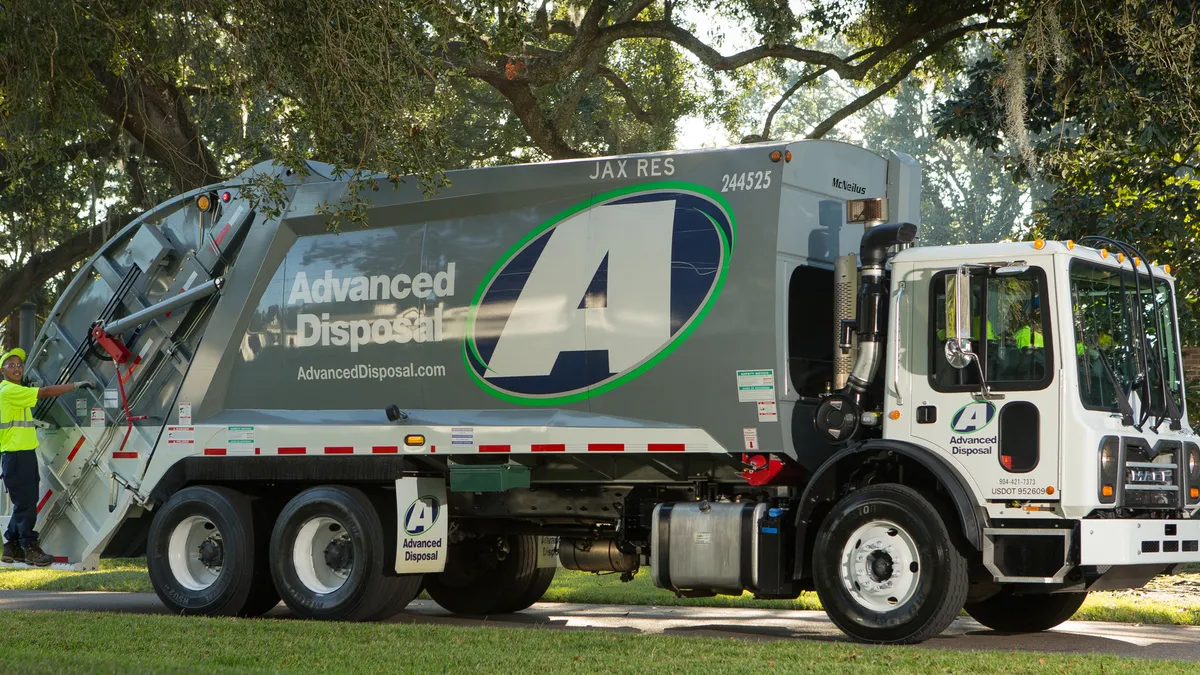Business owners who are considering selling their companies must be ready to put in long, detailed work to get the best deal in today’s competitive M&A environment, said experts during a WasteExpo discussion on business valuation.
There’s healthy potential for multiple kinds of deals in the near future, said analysts and investors during a May 6 panel discussion about waste business sales. Owners who are getting ready to sell are likely in a good position in today’s market, where there are higher numbers of interested buyers compared to 10 years ago, they said.
“The COVID era also made the waste industry into the golden era of garbage,” said Rob Michalik, managing director at private equity firm Kinderhook Industries. During that time, public waste management companies showed good price discipline and return on capital investment, “and the entire industry has really benefited from that,” leading to higher valuations and more interest from both private equity companies and public companies.
“I think it's a pretty competitive market out there right now,” added Brian Bauman, WM's vice president of business development. He noted that each buyer — whether it’s one of WM’s waste company peers or a private equity firm — will look at a seller’s assets in a different light.
Successful business owners can’t just rely on their good reputation and a neat set of books, speakers cautioned. “No one wants to buy the past, you always want to buy the future,” Michalik said. “It's expectations of the future, and people's confidence in what they believe the future will be, that drives higher values.”
Here are some key takeaways and tips from speakers during the discussion.
Showcasing company pride can add value
The selling process starts before an owner even decides it’s time to let the business go, speakers said. For some smaller family-run companies, that could mean sitting down with the family and agreeing that selling the company is a smart business move and isn’t a betrayal of the hard work past generations have put into it, said Billy Ching, who leads the private equity practice group at Nelson Mullins. Investing time and energy into thoughtful succession planning also helps, speakers said.
Buyers can tell when owners take pride in their company and legacy, Michalik added.
Sellers who run their businesses “like they want to own them, not sell them,” are a major green flag because it’s more likely that equipment will be maintained and capital improvements are thoughtfully scheduled, he said. It’s also a good sign when businesses that meticulously maintain contracts and make them easily renewable, Bauman added.
Sophisticated buyers can tell when a seller is trying to “save a few nickels” by not performing small maintenance tasks like repainting lines in the parking lot, Michalik said. “That comes through in the sale process. Buyers are smart. When you see a business being run like people want to sell it, it usually means it's about to fall again,” he said.
Drilling down on finances will pay off
Getting a detailed picture of company finances is also a must when it’s time to sell your company, speakers said. “You need to understand crystal clearly where you are financially,” said Bert Rosica, a principal with A.E. Rosica & Co. That process goes beyond making sure the books are in order, he said.
Speakers recommended preparing a sell-side quality of earnings report. The document not only lays out a company’s financial performance for potential buyers but also validates specific information such as earnings, projected future financial performance and other metrics that can show your business is sustainable.
Such reports can be pricey, but speakers said it’s worth the cost to validate this information by a third party. Investment bankers also like these reports, Rosica said. “They basically audit us and audit our client at the same time to make sure that we are presenting a fair and accurate representation of actually what's going on in the business,” he said.
Such reports can also protect sellers, particularly smaller businesses that have less access to sophisticated accounting software or other tools, Ching said. It helps to avoid “a situation where your expectations for where you think your profitability is are totally different than how third parties are going to look at it,” he said.
Sellers armed with more specific financial information make their businesses look more attractive, particularly for experienced buyers, Bauman said. “The more prepared you are, the easier the transactions will go, the better your valuation is probably going to be,” he said.
Find the right team to move the sale to the finish line
Selling a company can sometimes feel like a second job because of all the details required, Michalik said. “It takes you away from your business. … You're spending less time paying attention to your customers, and you're spending less time paying attention to your people, and that can have a negative impact on your business.”
Speakers stressed the importance of working with the right advisors who understand the company and the value it can bring a buyer. “The right bankers and attorneys can help prevent you from overplaying your hand” and losing a deal, said Marty Bryant, CEO of Wastequip.
Rosica recommends looking for an attorney who specializes in mergers and acquisitions. “This isn’t a guy that does a deal every now and then between his real estate deals and his trust deals,” he said.
Disclosure: Informa, which owns a controlling stake in Informa TechTarget, the publisher behind Waste Dive, is also the owner of WasteExpo. Informa has no influence over Waste Dive’s coverage.




















